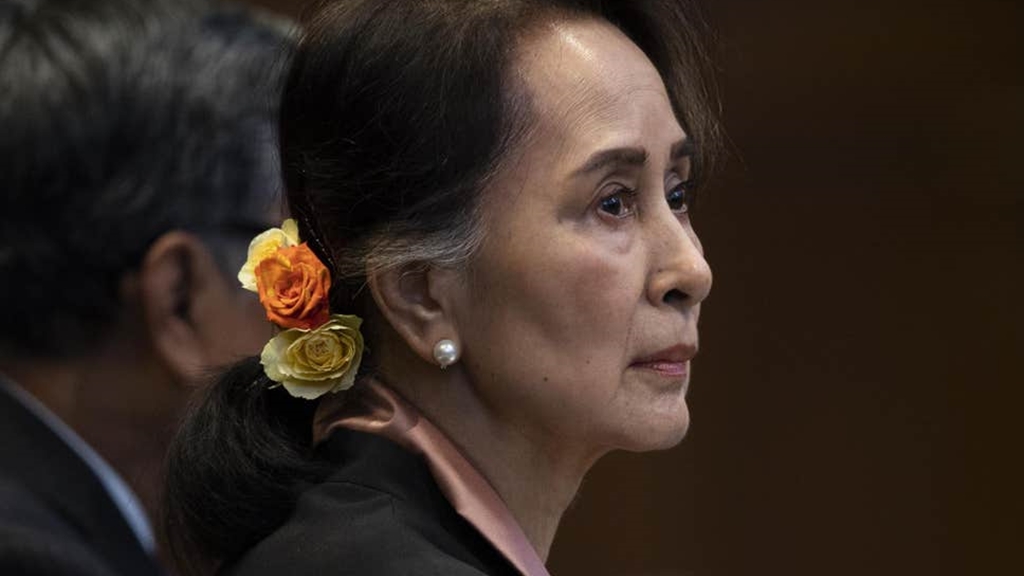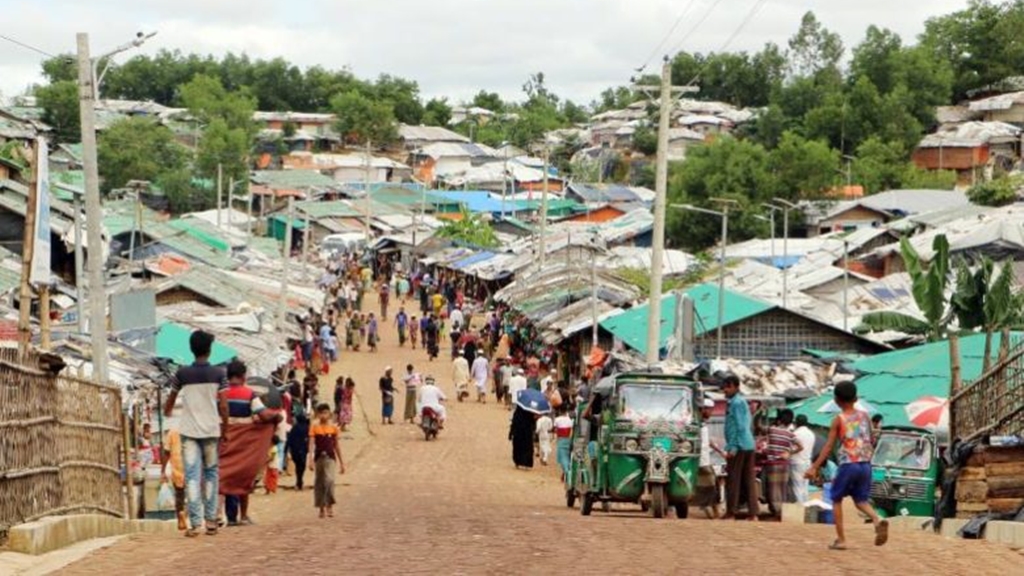Aung San Suu Kyi has appeared at the highest UN court to defend Myanmar against genocide charges, following her country’s brutal crackdown on the Rohingya minority.
In hearings at the International Court of Justice in the Netherlands, government head Ms Suu Kyi is expected to argue killings by her nation’s military were a legitimate response to attacks by ethnic insurgents.
Gambia launched proceedings against Myanmar in November, alleging the Buddhist-majority country’s forces carried out widespread and systematic atrocities during a “clearance” campaign launched in August 2017.
A court petition said the military “intended to destroy the Rohingya as a group, in whole or in part, by the use of mass murder, rape and other forms of sexual violence, as well as the systematic destruction by fire of their villages, often with inhabitants locked inside burning houses”.
It is only the third genocide case filed at the court in The Hague since the Second World War.
In a dramatic fall from grace, Ms Suu Kyi will deny the allegations on Tuesday 28 years to the day since she was awarded the Nobel Peace Prize for her non-violent struggle for democracy and human rights in the country where she spent 15 years under house arrest.
More than 730,000 Rohingya fled Myanmar after the military-led crackdown and were forced into the world’s largest refugee camp across the border in Bangladesh.
This week’s three-day proceedings before a panel of 17 judges will not deal with the core charge of genocide, but Gambia has requested the court impose “provisional measures” to force Myanmar to halt any activity that may aggravate the dispute.
“All that the Gambia asks is that you tell Myanmar to stop these senseless killings,” said Abubacarr Tambadou, justice minister of the tiny, Muslim-majority west African nation. ”To stop these acts of barbarity and brutality that have shocked and continue to shock our collective conscience. To stop this genocide of its own people.”
Ms Suu Kyi, who arrived in a motorcade at The Hague’s ornate Peace Palace and ignored questions from waiting reporters, sat expressionless as the courtroom heard details of alleged atrocities.
On the eve of Tuesday’s proceedings, the Netherlands and Canada put out a joint statement in support of the Gambia.
“Canada and the Netherlands consider it their obligation to support the Gambia before the International Court of Justice, as it concerns all of humanity,” the two countries said.
Ms Suu Kyi’s office said last month she would lead her country’s team in The Hague to “defend the national interest”.
Both Rohingya survivor groups and Myanmar government supporters are planning demonstrators in the Dutch city to coincide with the court hearings.
On Monday, the Free Rohingya Coalition called for a global boycott of Myanmar, urging ”corporations, foreign investors, professional and cultural organisations to sever their institutional ties” with the southeast Asian country.
In the sprawling Bangladeshi camps where they now live as refugees, some Rohingya prayed for justice ahead of the court proceedings.
Momtaz Begum, 31, told Reuters that soldiers murdered her husband and locked her in her house in northern Rakhine state as they set fire to the roof. She escaped to find her three sons dead and her daughter beaten and bleeding.
“The army killed my husband,” she said. “They raped me and torched my house, they stabbed my six-year-old daughter in the head. Why did they kill our innocent people, our kids? Why did they torture and rape our women? We demand justice.”
Nicholas Bequelin, Amnesty International’s regional director for southeast Asia, said: “There is a mountain of evidence that the Myanmar military has committed crimes under international law and grave human rights violations against the Rohingya population.
“If Aung San Suu Kyi is serious about serving the people of Myanmar, she should be standing side by side with victims and survivors in the pursuit of justice, truth and reparation. She should not covering up for those suspected of criminal responsibility.”
Myanmar has previously denied almost all allegations made by refugees against its troops, who have been accused of mass rape, killings and arson, and promised to punish any soldiers involved in what it claims were isolated cases of wrongdoing.
In Myitkyina, the capital of Kachin state in northern Myanmar near the border with China, hundreds of people marched in support of the Ms Suu Kyi on Monday. More demonstrations are planned to take place in the major cities Yangon and Mandalay when the court hearings begin.
The UN tribunal has no enforcement powers, but its rulings are final and have significant legal weight.







